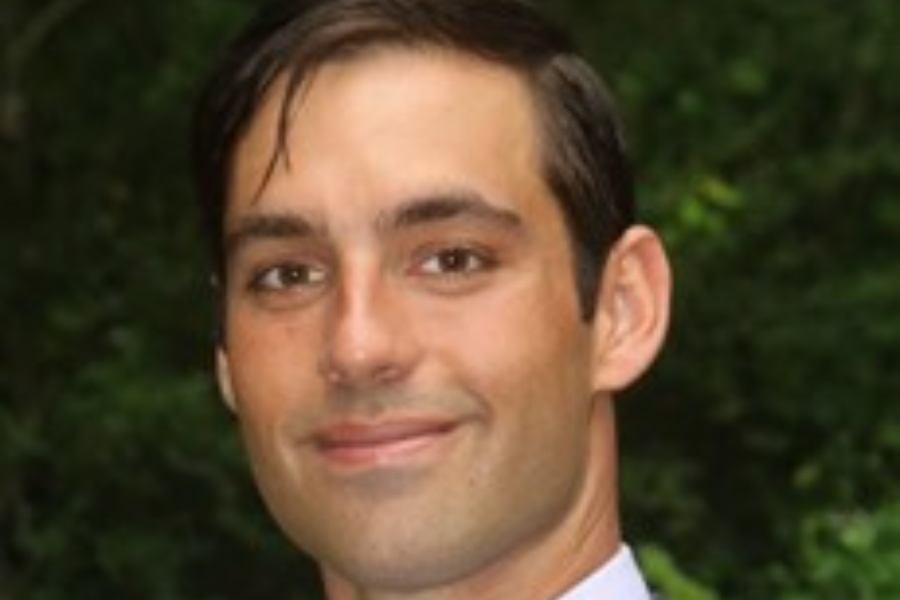Benton Jaco

"An opportunity to make a difference"
College: Arts and Sciences
Degree Program: Biological Science
Degree: Master's
Award: NSF GRFP (2022)
Why FSU?
I was discharged from the Navy in 2017 and enrolled at Tallahassee Community College to complete my associate degree. Then, I transferred to Florida State University to complete my undergraduate degree. During these studies, I developed a sense of belonging as I participated in the TCC Veteran Leadership Academy, the FSU Marine Biology Honors Program, and the FSU Undergraduate Research Opportunity Program (UROP). During the UROP program, I worked with Dr. Janie Wulff on her mangrove sponge community development research. Dr. Wulff generally inspired me before working with her, as I am inspired by anyone whose work is tremendously impactful to the world. This general inspiration was directed as I realized the impactful outcomes I admired resulted from Dr. Wulff's work ethic, curiosity, scientific talent, and environmental activism. Such a push has driven me to work diligently to develop these same traits. As such, I chose to pursue a graduate degree in the Department of Biological Science to continue learning from Dr. Wulff and give back to the institution that provided me with much more than just an education.
Motivation to pursue a graduate degree
I aim to leave the world in a significantly better state than I found it. The best way I can accomplish this goal is by implementing the scientific method. Using the scientific method allows innovations to be discovered and information to be uncovered, which benefits both my generation and the generations to come. As such, I am pursuing a graduate degree to become a scientist who can innovate and unravel the natural processes that guide the world for the benefit of humanity. Specifically, I am investigating harmful algal blooms to discover ways to reduce the significant damage resulting from these events.
Importance and/or impact of research and work
I am investigating phytoplankton allelopathy to discover a means of mitigating harmful algal bloom damage, which amounts to over $1 billion annually in the United States (The Effects: Economy | US EPA). Phytoplankton competes allelopathically; in other words, they compete through the release of metabolites that reduce the growth of a competitor species. Prior research has indicated that certain phytoplankton species may compete allelopathically with Karenia Brevis, the species responsible for harmful algal blooms in the Gulf of Mexico. As such, I seek to verify the competition results from allelopathy before attempting to discover the metabolite responsible. Ideally, this research will provide an environmentally friendly chemical that can control the growth of K. brevis, thereby minimizing the damage caused by harmful algal blooms in the Gulf of Mexico.
Describe an aspect of your military service that is especially memorable or exceptional
My favorite training in the military was SERE School. A crucial part of this training is teaching survival skills before going into the wild and doing your best to survive. For me, this training took place in some beautiful snow-covered mountains, and even though I was surviving in the wild, without food and constantly freezing, I could not help but appreciate those mountains. This school puts you in highly stressful situations, and you learn more about yourself than is possible in any traditional school. I loved it.
Tell us how your military service provided skills and experiences that you were able to apply to your graduate studies
My military service provided me with so many valuable skills for graduate school that it is hard to boil down to a few key points. Broadly, I learned to be orderly, take care of my physical health, study, and push past mental barriers. Additionally, I learned to operate with a team during stressful situations. Stress management skills have been helpful for my graduate studies, as I find the stress of graduate school to be quite manageable, which would not be the case without my military experience.
Career aspirations
I want a career that will let me conduct novel algae research. That may be in industry or academia. I love to teach, so I would be thrilled if I could be a teacher. However, many uninvestigated aspects related to algae could benefit the planet and become huge industries. For example, in 2021, a research project at the University of Colorado became Prometheus Materials, an algae-based concrete production company. Traditional concrete production accounts for ~8 percent of global CO2 emissions, but this new approach will not only replace this emission source but will also sequester significant amounts of CO2. Next, the brand Reef recently came out with an entire algae-based flip-flop. Lastly, algae supplements have been shown to significantly reduce methane from cattle production. We are only starting to scratch the surface of what algae can be used for, and all these uses have the potential to reduce atmospheric carbon levels significantly. I want to be one of the people leading this field when its time comes. I've talked about this so much with my dad that he now lovingly refers to me as "The Henry Ford of Algae," but I think he is being optimistic.
Advice for anyone considering graduate school
Make sure you know why you are considering graduate school. It's not a good idea to start graduate school simply because you don't know what else to do. If you decide to attend graduate school, do so with intent. Also, if you want to attend graduate school, consider studying algae-based material production.
Accomplishments during graduate career
I built an algae wheel that automatically mixes up to 24L of algae within an environmental chamber with automatically controlled temperature and lighting levels. I was also nominated to submit this graduate experience statement, which is an honor. Lastly, I received a couple of awards and grants: NSF GRFP, Lazzara Scholarship, FSU IDEA Grant, FSU Alumni Spotlight, TCC Veteran Leader Award, and Honors in the Major.
